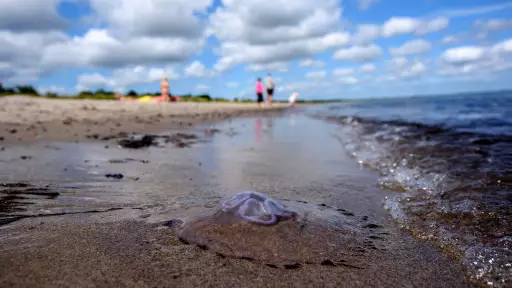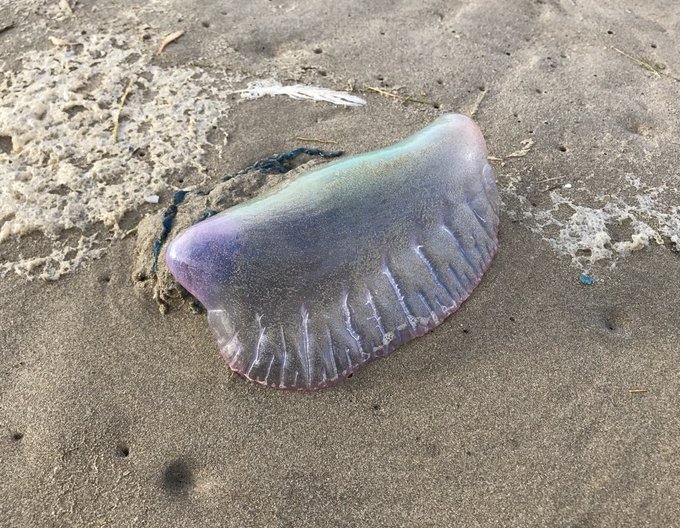
Much of the UK is preparing to brace itself as Hurricane Ophelia brings gale force winds, while all northerners are relishing the opportunity to give their 'big coat' the return it's deserved since summer began.
However, one thing that your big coat won't protect you from is the plethora of Portuguese man o' war that have reportedly been blown toward English shores. The creatures resemble jellyfish but are actually siphonophores, according to Huffington Post.
Beach goers are being warned by coastguards about the marine animals, whose poisonous stings can prove fatal, after they were spotted up and down the Dorset and Devon coast.
They're fairly easy to avoid, luckily, as they're not the most mobile of critters. Plus UK beaches aren't exactly hotspots at this time of year, so no one's really missing out if they don't go.
Advert
A number of Portuguese man o'war have reportedly been seen at Dawlish, Lyme, Charmouth, Bournemouth, Swanage, Seaton, Hove and Portsmouth, according to Huffington Post.
Chris Sallows, from the UK Coastguard, said: "We are aware of these sightings after receiving multiple reports from members of the public yesterday and today.
"Until an accurate identification is made, members of the public are advised to keep away from these jellyfish and report any sighting to their local council.
Advert
"The Coastguard has also advised the local councils of these recent sightings. Stings from Portuguese man o'war can be very painful and potentially harmful to humans and dogs alike."
The Met Office has warned that Hurricane Ophelia could bring 'potential danger to life', as it blows 80mph (130km/h) winds through the UK.
The BBC reports that an amber warning has been issued to Northern Ireland, parts of Wales and south west Scotland.
Advert
"Flying debris is likely, such as tiles blown from roofs, as well as large waves around coastal districts with beach material being thrown onto coastal roads, sea fronts and properties," The Met Office said in a statement.
"This leads to the potential for injuries and danger to life."
It's a great excuse to stay at home and not go to work, to be quite honest.
Featured Image Credit: PATopics: uk news

